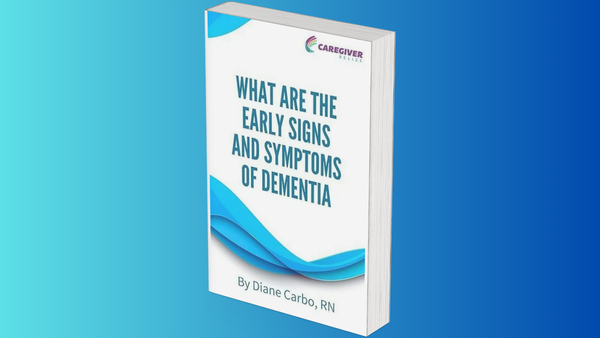Does Vaping Cause Loss of Appetite?

Introduction
Vaping is a fairly new phenomenon that has taken the world by storm. It's become incredibly popular in both the United States and across the globe. But what effect, if any, does vaping have on our appetite?
In this guide, we'll take a look at the potential effects of vaping on appetite. We'll focus on the research that has been conducted on the topic, as well as any other potential impacts that vaping may have on our health.
We'll start by taking a closer look at vaping itself. We'll explore what it is, how it works and its potential health risks. Then we'll move on to understand the links between vaping and loss of appetite. We'll pay particular attention to the research that has been conducted on the subject. We'll then consider any potential long-term effects of vaping, as well as the potential risks for specific groups. Finally, we'll finish up with a discussion of prevention and treatment measures.
By the end of the guide, you should have a good understanding of the potential effects of vaping on appetite.
Overview of Vaping
Vaping is the use of an electronic device that heats a specially formulated liquid into an aerosol. This vapor is then inhaled through a mouthpiece, usually into the lungs. The vapor can contain nicotine as well as other chemicals and flavors. Vaping is commonly used as an alternative to smoking cigarettes, pipes, and cigars.
Vaping devices can come in many shapes and sizes, ranging from small gadgets that look like USB drives, to large desktop machines. The device typically consists of two main parts: a battery and a tank (also known as a cartomizer or atomizer). The tank is filled with a special vaping liquid (often referred to as e-liquid or e-juice), which is then heated via the battery. The heat causes the liquid to turn into vapor, which is then inhaled.
Vaping liquids often contain nicotine, although some non-nicotine options are also available. The nicotine content can vary depending on the product, but most contain similar levels to traditional cigarettes. Other ingredients often found in vaping liquids include propylene glycol, vegetable glycerin, and different flavorings.
Health Effects of Vaping
Vaping has become increasingly popular in recent years, but due to its relative newness, researchers are still exploring the potential risks associated with it. While some believe that vaping is a safer alternative to traditional smoking, there are potential health effects to consider before taking up this habit.
The most obvious health risk of vaping is nicotine addiction. Many vapes contain nicotine, and this addictive substance can lead to physical and psychological dependence. Long-term exposure to nicotine has also been linked to cardiovascular disease, cancer, breathing problems, and other health issues.
In addition to nicotine, vapes contain other potentially harmful chemicals such as propylene glycol and glycerol. When these chemicals are heated, they can break down into formaldehyde and other carcinogens which have been linked to an increased risk of cancer. These chemicals can also irritate the lungs and throats.
Vapes also produce second-hand vapour, which may be less dangerous than smoke from traditional cigarettes, but can still be hazardous. Research has shown that second-hand vapour contains many of the same toxins as regular smoke, such as heavy metals and formaldehyde. This puts those around the user at risk of health issues such as asthma, bronchitis, and heart disease.
Finally, vaping can also lead to dehydration. This is because many e-liquids contain diacetyl, a flavour additive which blocks the body's ability to excrete water. Long-term dehydration can lead to fatigue, dizziness, and other health problems.
Vaping and Appetite
Vaping has become a popular alternative to smoking cigarettes, but the effects of this habit on appetite have been widely debated. Vaping involves the use of electronic devices such as e-cigarettes that are filled with flavored nicotine liquid. This liquid is heated into a vapor and the user inhales the vapor. It is believed that this vapor can cause changes in appetite.
There is some evidence that vaping can lead to changes in appetite. Studies have shown that people who vape tend to have an increased desire for sweet and salty food items, and may be more prone to snack more frequently. There is also evidence to suggest that vaping can lead to feelings of nausea and stomach discomfort, which could lead to decreased appetite.
In addition to changes in appetite, vaping can also lead to changes in eating behavior. Studies have shown that people who vape are more likely to consume high fat and sugary foods, as well as consume larger portions per meal. This can lead to weight gain, which can have an impact on overall health.
It is important to note that the effects of vaping on appetite are still largely unknown. More research needs to be done in order to better understand the potential impacts on appetite. Additionally, it is important to discuss any concerns with a healthcare provider before taking up vaping.
Research on Vaping and Loss of Appetite
As vaping has become increasingly popular, research has been conducted into the potential effects it may have on the body. One such area of interest is the impacts that vaping could have on appetite - does vaping cause loss of appetite?
The existing research into this topic is limited, however a number of studies have been conducted so far. The majority of the research focuses on adults, however some studies have also looked at how vaping could affect teenagers as well.
An Australian study looked at the levels of nicotine and other chemicals that are present in e-cigarette vapour. They tested both nicotine-containing and nicotine-free e-cigarettes. The results showed that the two types of vaping had similar effects on appetite, with no clear evidence that one was more or less likely to cause loss of appetite than the other.
A study from the United Kingdom compared the impact of vaping on appetite between smokers and non-smokers. The results showed that those who smoked cigarettes were more likely to report reduced appetite after vaping, while non-smokers were not affected.
Finally, a study from the US looked at the effects of vaping on teenagers. The results showed that teens who vaped experienced a decrease in appetite levels compared to non-vaping teens.
These findings indicate that there may be a link between vaping and loss of appetite. However, more research is needed to understand the causes and implications of this effect.
Review of Studies
Over the years, many studies have been conducted to investigate the potential links between vaping and appetite loss. The findings of these studies have varied, with some suggesting that vaping may influence appetite, while others showing no significant link. In this section we will review the available research on this topic.
One study published in 2018 found that vaping was associated with increased levels of hunger hormones, which could lead to decreased appetite. However, this result did not hold true when it came to actual food intake. Another study, carried out in 2019, found no effects of vaping on food intake or body weight.
Two further studies examined the impact of nicotine-containing e-cigarettes on appetite. The first, carried out in 2017, found that nicotine-containing e-cigarettes had a negative effect on food intake. The second study, published in 2020, showed no difference in appetite between those who vaped nicotine-containing e-cigarettes and those who did not.
Overall, the existing research is inconclusive as to whether vaping causes loss of appetite. Although some studies have suggested that vaping could have an impact on appetite, more research is needed before any definitive conclusions can be drawn.
Effects on Mental Health & Eating Behavior
When it comes to vaping and loss of appetite, there is an increasing focus on the potential impacts of vaping on mental health and eating habits. Studies have shown that individuals who vape are at higher risk for developing certain mental health conditions, and this can ultimately lead to changes in eating habits. For instance, people who suffer from depression or anxiety may find themselves avoiding food or overeating due to their low moods.
In addition, the presence of nicotine in e-cigarettes can also lead to changes in eating habits. Nicotine is a stimulant, and when individuals vape and consume nicotine, they may experience decreased levels of hunger, which can lead to them eating less than normal. Conversely, nicotine can also cause cravings to eat more, resulting in weight gain and unhealthy eating patterns.
It is also important to note that the chemical components in e-liquids can potentially be toxic to humans, which can negatively impact the digestive system and lead to decreased appetite or other gastrointestinal symptoms. Furthermore, the flavorings in e-cigarettes can also contribute to changes in eating habits as they can be appetizing and lead to cravings for unhealthy foods.
Long Term Effects of Vaping
Smokers who switch to vaping may find that the long-term effects are far less damaging than those of traditional cigarettes. There is still, however, a risk of some health effects from long-term vaping.
There are many chemicals in the e-juice used to fill cartridges in vapes. The effects of long-term exposure to these chemicals are still largely unknown, but some of the potential risks may include:
- Damage to blood vessels and an increased risk of cardiovascular diseases, such as stroke or heart attack.
- A heightened risk of developing certain types of cancer. Studies have found that chemicals present in vape juice could lead to an increased risk of certain types of cancer.
- Damage to the lungs from long-term exposure to propylene glycol. Propylene glycol is an ingredient used to make the vapour in vapes, and long-term exposure to it can cause inflammation and damage to the lungs.
- Addiction or dependence. Long-term vaping can lead to a change in the brain’s pleasure pathways, which can make it harder for someone to stop using the product.
- Anxiety and depression. Studies have found that long-term vaping could lead to an increased risk of anxiety and depression.
It is important to remember that the long-term effects of vaping are still largely unknown and more research needs to be conducted to determine the full extent of the risks. Therefore, it is important to be mindful of the potential risks of vaping, and to take steps to reduce exposure to any potentially harmful substances.
Effects on Specific Groups
As with most substances, certain groups may have a greater risk of experiencing loss of appetite when vaping. Some of these groups include:
- People who already have a poor appetite or struggle to maintain their dietary intake
- Young adults who vape socially or more regularly
- Smokers who have recently switched to vaping
The effects of vaping on appetite can be particularly significant for people who already have a poor appetite. The nicotine content in many vaping products can affect blood sugar levels and suppress hunger, making it difficult to meet nutritional needs. Additionally, the flavoring additives in vaping products may also make certain foods less attractive.
Young adults who vape socially or more regularly are also at an increased risk to experience changes to their appetite compared to other age groups. This is due to the fact that adolescents’ bodies are still undergoing development, so they are more vulnerable to the potential health risks of vaping. Furthermore, the flavoring additives in vaping products can interfere with how they perceive food, making them less likely to eat a balanced diet.
Finally, smokers who have recently switched to vaping may also experience changes in their appetite. This is because the nicotine content in many vaping products can cause hunger suppression, leading to decreased consumption of food. Additionally, the flavoring ingredients used in vaping may also make certain foods unappetizing.
Prevention & Treatment
It is always best to avoid vaping, or any other potentially harmful substances. There are some steps that can be taken to reduce the risk of loss of appetite or other health issues associated with vaping.
Firstly, it is important to always adhere to the manufacturer’s instructions and use the device as instructed. Secondly, only buy e-cigarettes from reputable vendors and avoid using low-cost, unregulated products, which may contain unmeasured ingredients. Vapers should also ensure they use the correct charger for their device, as charging from the incorrect source can lead to problems with battery life and safety.
It is also important to reduce exposure to the nicotine and other chemicals found in e-liquid, as these can have an effect on appetite. To do this, vapers can use nicotine-free liquids or reduce the nicotine levels in the liquid they use. It is also recommended that vapers keep accurate records of their consumption, to make sure that they do not exceed safe levels of nicotine.
Finally, when someone has been vaping for a while and notices a change in their appetite, they should consider cutting back on vaping, or even quitting completely. Quitting can be difficult, but there are a number of support services available to help.
Conclusion
Vaping has become an increasingly popular trend in recent years and it is important to examine its potential effects on health. While there is still much to be learned about the impacts of vaping, research suggests that it has certain health risks, including a potential link to appetite loss. Vaping can affect individuals differently and certain groups may be particularly vulnerable. To reduce the potential risks associated with vaping and loss of appetite, it is important to practice caution when using e-cigarettes. Finally, it is essential to consult reliable sources for more information and to perform proper research to inform any decision to vape.




